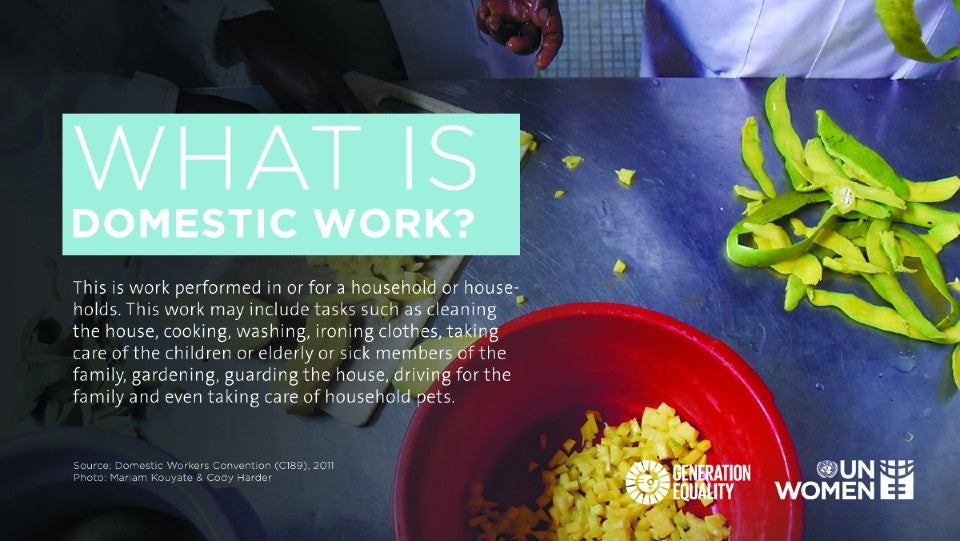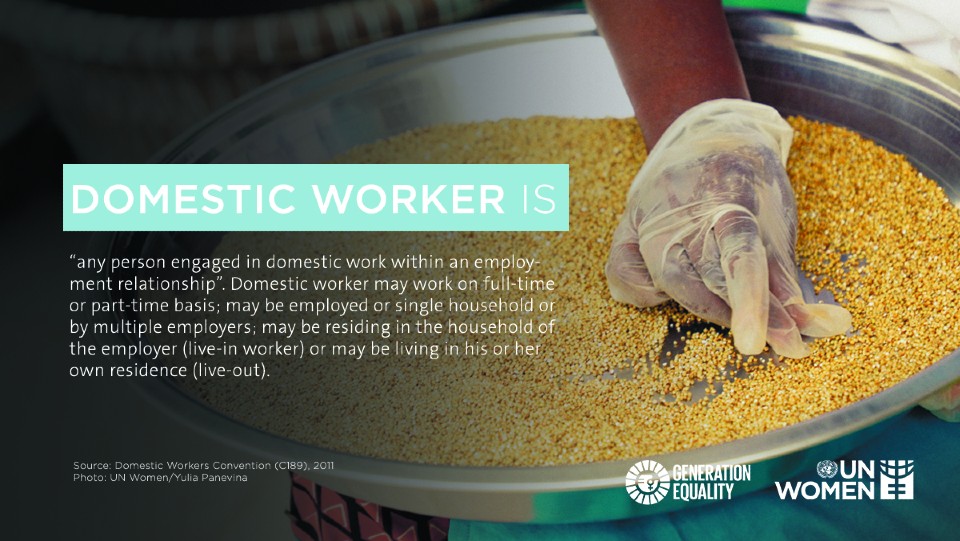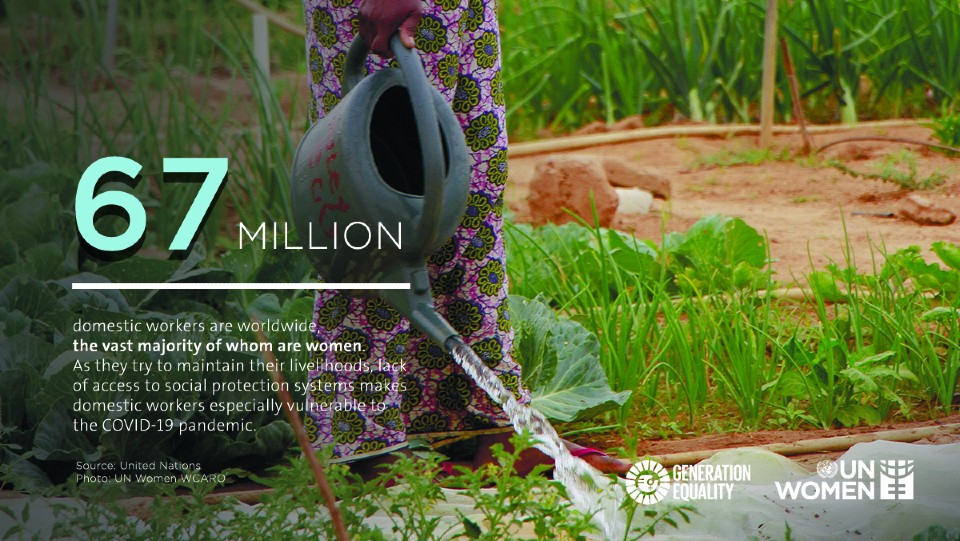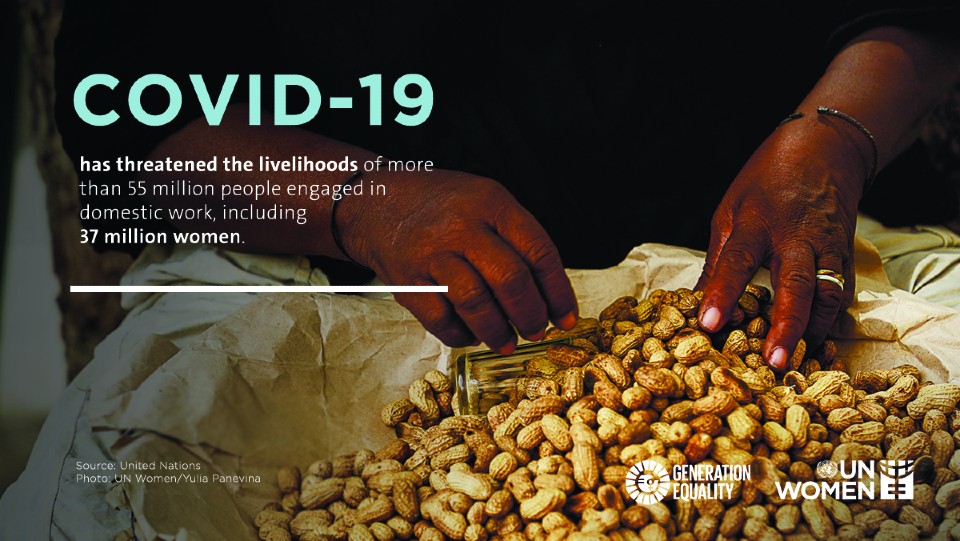International Domestic Workers Day
Date:
Did you know that 16 June is International Domestic Workers Day? The day celebrates the contributions of domestic workers and draws attention to their needs.
Domestic workers are an integral part of the global labour force. Whether hired locally or internationally, they are employed in or for a household to perform work such as cleaning, cooking, washing and person care that is vital for the wider economy. Find out more about their rights.
What is domestic work?
This is work performed in or for a household or households (Convention No. 189). This work may include tasks such as cleaning the house, cooking, washing, ironing clothes, taking care of the children or elderly or sick members of the family, gardening, guarding the house, driving for the family and even taking care of household pets.

Who is a domestic worker?
A domestic worker is “any person engaged in domestic work within an employment relationship”. Domestic worker may work on full-time or part-time basis; may be employed or single household or by multiple employers; may be residing in the household of the employer (live-in worker) or may be living in his or her own residence (live-out).

Who is the employer of a domestic worker?
A member of the household for which the work is performed, or an agency or enterprise that employs domestic workers and makes them available to the households.
Minimum Standards Set by Convention No. 189 for domestic workers.
What is Convention 189?
This convention offers specific protection to domestic workers. It lays down basic rights and principles and requires States to take a series of measures with a view to making decent work a reality for domestic workers. The ILO Convention 189 is an important step towards achieving decent working and living conditions, respect for human rights, fundamental rights, and access to social protection for domestic workers around the world.
Basic rights of domestic workers.
- Promotion and protection of the human rights of all domestic workers.
- Respect and protection of fundamental principles and rights at work: (a) freedom of association and the effective recognition of the right to collective bargaining; (b) elimination of all forms of forced or compulsory labour; (c) abolition of child labour; and (d) elimination of discrimination in respect of employment and occupation.
- Effective protection against all forms of abuse, harassment, and violence.
- Fair terms of employment and decent living conditions.

Information on terms and conditions of employment.
- Domestic workers must be informed of their terms and conditions of employment in an easily understandable manner, preferably through a written contract.
Hours of Work.
- Measures aimed at ensuring equal treatment between domestic workers and workers generally with respect to normal hours of work, overtime compensation, periods of daily and weekly rest, and annual paid leave.
- Weekly rest period of at least 24 consecutive hours.
Remuneration.
- Minimum wage if a minimum wage exists for other workers.
- Payment of wages must be paid in cash, directly to the worker, and at a regular interval of no longer that one month. Payment by check or bank transfer- when allowed by law or collective agreement, or with workers’ consent.
- In-kind payment is allowed: only a limited proportion of total remuneration; monetary value is fair and reasonable; the items or services given as in-kind payment are of personal use by and benefit to the worker. Unforms and protective equipment are not to be regarded as payment in kind, but as tools that employer must provide to the workers at no cost.
- Fees charged by private employment agencies are not to be deducted from the remuneration.
Occupational safety and health.
- Right to be safe and healthy working environment.
- Measures are put in place to ensure workers’ occupational safety and health.
Social Security.
- Social security protection including maternity benefits.
- Conditions not less favorable than those applicable to workers.
Standard Concerning child domestic workers.
- Domestic workers aged 15 years old but less than 18 years old- their work should not deprive them of compulsory education or interfere with their opportunities to further education or vocational training.
Standards concerning live-in-workers.
- Decent living conditions that respect workers’ privacy.
- No obligation to remain in the household or with its membership during their periods of rest or leave.
- Right to keep their identity and travel documents in their possessions.
Standards concerning migrant domestic workers.
- A written contract that is enforceable in the country of employment, or a written job offer, prior to traveling to the country of employment.
- Clear conditions under which domestic workers are entitled to repatriation at the end of their employment.
- Protection of domestic workers from abusive practices by private employment agencies.
Private employment agencies.
- Ensure adequate machinery for the investigation of complaints by domestic workers;
- Provide adequate protection of domestic workers and prevention of abuses, in collaboration with other Members where appropriate.
Dispute settlement, complaints, enforcement
- Effective access to the court, tribunals, or other dispute settlement mechanisms, including accessible complaint mechanisms.

The study on: The Impact of COVID 19 on Domestic Workers in Africa proposes the following recommendations for the State, employers and domestic workers’ organizations in response:
Recommendations for the State, in articulation with domestic workers’ organizations:
- Awareness-raising campaigns regarding occupational health and safety standards, workers’ rights and employer responsibilities.
- Distribution of personal protective equipment, including gloves, masks and hand sanitizer, at key access points such as bus and taxi ranks.
- The introduction of price controls and subsidies to ensure that basic products including food, utilities and transportation remain affordable.
- The extension of emergency income-support measures to domestic workers through non-contributory social welfare.
- The extension of contributory social insurance to domestic workers and the adoption of an enforcement framework which encourages employer compliance.
- The introduction of a contributory unemployment benefit, where absent.
- The ratification of Convention 189 and 190, the adoption of complementary national legislation and the implementation of an appropriate enforcement framework.
- Improved access to medical assistance and safe public transportation.
Recommendations for employers:
- Greater communication with domestic workers regarding occupational health and safety measures, the health condition of household members, etc.
- Provision of adequate personal protective equipment and safe transportation to and from work.
- Provision of paid quarantine leave during lockdown periods or in the case of infection.
- Compliance with international norms and national regulations related to domestic work, including written contracts, working time, wages, paid leave –e.g. daily rest, weekends, holidays, sick days and maternity leave–employer contributions to social insurance schemes, occupational health and safety standards, and severance pay.
Recommendations for domestic workers’ unions:
- Awareness-raising campaigns regarding occupational health and safety standards, workers’ rights, and employer responsibilities for domestic workers.
- Recruitment drives to expand membership, retain members and improve the collection of dues.
- Consolidation of unions’ emergency welfare funds through the improved collection of union dues and periodic grassroots fundraising campaigns, to distribute food and personal protective equipment on a more sustainable basis.
- Expansion of the union training program to include “know your rights”, leadership development and income-generating workshops.
- Call for ratification of convention 189 by all countries. 2021 is the 10 year anniversary of the adoption of the convention and only 5 African countries have ratified the convention (Mauritius, South Africa, Guinea, Madagascar, Namibia)
Related Links:
Checklist to Protect and Support Domestic Workers
Domestic Workers Count Too: Implementing Protections for Domestic Workers